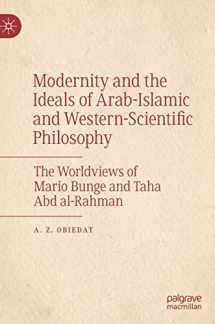
Modernity and the Ideals of Arab-Islamic and Western-Scientific Philosophy: The Worldviews of Mario Bunge and Taha Abd al-Rahman
Book details
Summary
Description
This is the first study to compare the philosophical systems of secular scientific philosopher Mario Bunge (1919-2020), and Moroccan Islamic philosopher Taha Abd al-Rahman (b.1945). In their efforts to establish the philosophical underpinnings of an ideal modernity these two great thinkers speak to the same elements of the human condition, despite their opposing secular and religious worldviews. While the differences between Bunge's critical-realist epistemology and materialist ontology on the one hand, and Taha's spiritualist ontology and revelational-mystical epistemology on the other, are fundamental, there is remarkable common ground between their scientific and Islamic versions of humanism. Both call for an ethics of prosperity combined with social justice, and both criticize postmodernism and religious conservatism. The aspiration of this book is to serve as a model for future dialogue between holders of Western and Islamic worldviews, in mutual pursuit of modernity's best-case scenario.


We would LOVE it if you could help us and other readers by reviewing the book
Book review



